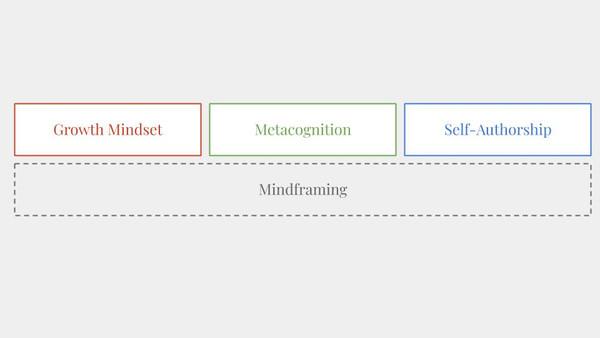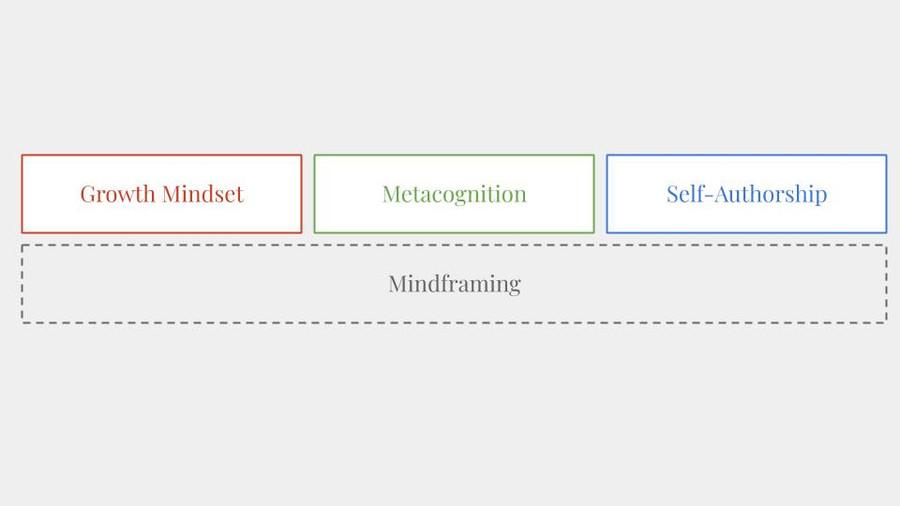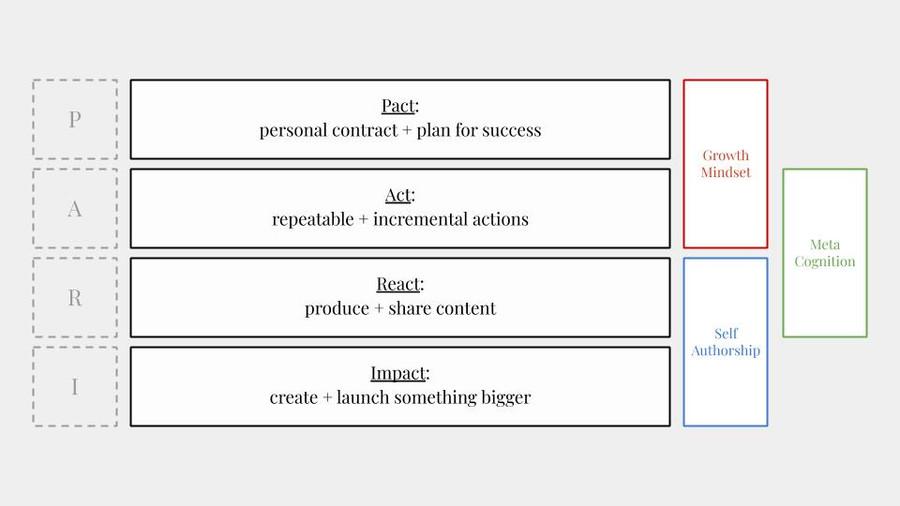Explore the World's Best Ideas
Join today and uncover 100+ curated journeys from 50+ topics. Unlock access to our mobile app with extensive features.
What is a mind frame?
According to the Merriam-Webster dictionary, a mind frame is a mental attitude or outlook. It’s more than just a mood, it encompasses the particular way someone thinks or feels about something, and deeply influences one’s behaviour.
35
287 reads
What do you need to become a master mindframer?
There are three main frames to consider to become a “master mindframer”:
- Growth mindset
- Metacognition
- Self-authorship
34
241 reads
In a fixed mindset, people believe their basic qualities, like their intelligence or talent, are simply fixed traits. They spend their time documenting their intelligence or talent instead of developing them.
CAROL DWECK
32
198 reads
Growth mindset
“Growth mindset” is such an overused expression, but we’ll have to stick with it until someone comes up with a new one. In this particular case, having a growth mindset means having the deep belief that growing happens through small, incremental steps, rather than big overnight victories.
33
187 reads
Metacognition
Metacognition is simply “cognition about cognition”, or simply put “thinking about thinking”. It’s a higher-order skill that allows you to be aware of your own awareness. Metacognition is your knowledge of what you know and don’t know, as well as all the strategies you use for learning and problem-solving. Mnemonic techniques, study plans, productivity tricks, or even how difficult you perceive a task to be, are all part of metacognition.
34
170 reads
Self-authorship
Self-authorship is the ability to define and express your own personal authority. It means that you’re not relying on external authority to define your beliefs, values, and social relationships. Instead of relying on external formulas, you are able to rely on your own internal voice to make decisions on a daily basis.
34
153 reads
Four steps to the mindframing method
There are four steps to the mindframing method:
- Pact
- Act
- React
- Impact
Which, you may notice, conveniently spells out PARI, which means “bet” in French. How wonderful.
36
180 reads
Create a pact
First, you create a pact, either with yourself or with others. I’m personally a big proponent of learning and building in public, but if you feel like you have the mental resilience and emotional strength to keep yourself accountable without sharing your goals with others, that’s fine too. There are also cases where you may not want to build your product in the open for other practical reasons.
32
125 reads
You need to act
Second, you need to act. This is usually the hardest part in most learning frameworks, which are complex and require you to go through lots of content in a specific order, study for a predetermined amount of hours per week, then complete some specific assignments. Way to feel discouraged.
With mindframing, you are in control of your learning process. There is no small contribution towards your goal. Each step you take brings you closer to the person you want to become.
35
111 reads
You need to react
This is when you start really internalising the concepts you have previously engaged with by creating your own content. I know it can sound daunting to start producing content at this stage. You feel like you’re such a newbie—who are you to share your thoughts about a topic that’s so new to you?
But this is one of the most efficient ways to learn, with the added bonus of helping you connect with people who are also interested in the topic.
33
107 reads
Work on a project with imapct
Once you feel familiar enough—which means that you can grasp the concepts and can articulate them, but still feel very uncomfortable using them—you should start creating something bigger. If you’re learning how to code, time to try building your first complex application. If you’re studying ancient history, time to write longer essays about a little-studied topic and submit them to relevant publications. If you’re studying music composition, time to create a collection of original pieces.
34
104 reads
IDEAS CURATED BY
Ness Labs provides content, coaching, courses and community to help makers put their minds at work. Apply evidence-based strategies to your daily life, discover the latest in neuroscience research, and connect with fellow curious minds.
CURATOR'S NOTE
You can have the best tools and strategies, but if you don’t have the right mind frame, things are not going to work.
“
Ness Labs's ideas are part of this journey:
Learn more about creativity with this collection
How to delegate tasks efficiently
How to use technology to your advantage
How to optimize your work environment
Related collections
Similar ideas
7 ideas
Writing is the best personal growth tool
nesslabs.com
3 ideas
How to develop your self-authorship
nesslabs.com
3 ideas
Time is not a measure of productivity
nesslabs.com
Read & Learn
20x Faster
without
deepstash
with
deepstash
with
deepstash
Personalized microlearning
—
100+ Learning Journeys
—
Access to 200,000+ ideas
—
Access to the mobile app
—
Unlimited idea saving
—
—
Unlimited history
—
—
Unlimited listening to ideas
—
—
Downloading & offline access
—
—
Supercharge your mind with one idea per day
Enter your email and spend 1 minute every day to learn something new.
I agree to receive email updates


